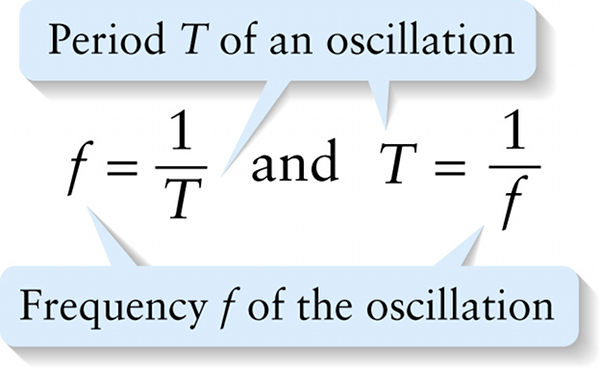Frequency and period (12-1)
Question 1 of 2
Question
Period \(T\) of an oscillation
{"title":"Period T of an oscillation","description":"Correct!","type":"correct","color":"#99CCFF","code":"[{\"shape\":\"poly\",\"coords\":\"82,133\"},{\"shape\":\"rect\",\"coords\":\"10,16,12,16\"},{\"shape\":\"rect\",\"coords\":\"56,44,88,76\"},{\"shape\":\"rect\",\"coords\":\"195,18,229,56\"}]"} {"title":"Frequency f of the oscillation","description":"Wrong","type":"incorrect","color":"#ffcc00","code":"[{\"shape\":\"rect\",\"coords\":\"118,11,119,13\"},{\"shape\":\"rect\",\"coords\":\"1,27,19,60\"},{\"shape\":\"rect\",\"coords\":\"275,46,297,81\"}]"}Review
Since period \(T\) is the number of seconds that elapse per cycle and frequency \(f\) is the number of cycles that happen per second, it follows that these quantities are the reciprocals of each \perpher:

